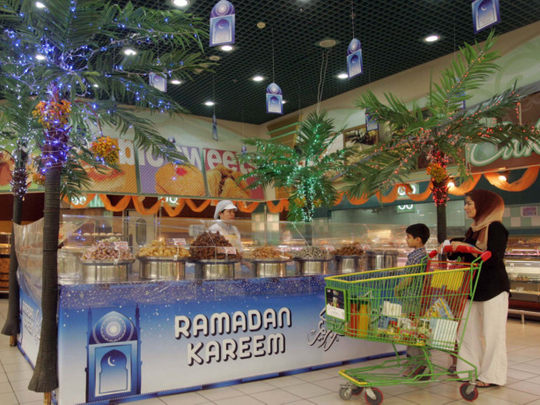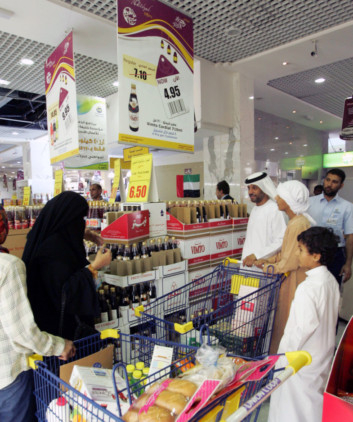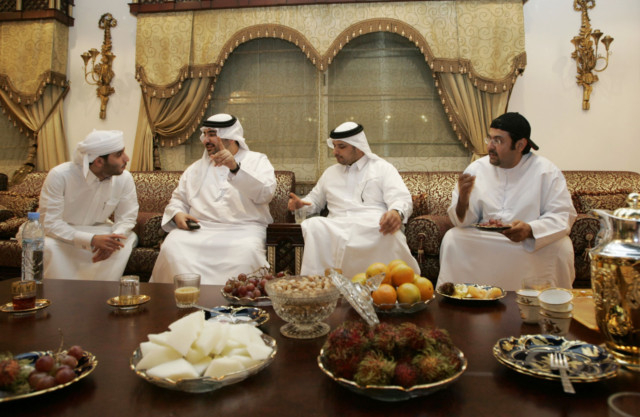
The next few days will mark the beginning of the holiest period in the Islamic calendar. While it’s a time for abstinence, prayer and family gatherings, Ramadan is also a perfect time to take stock and get your finances in order.
Financial advisers warn that spending can get out of hand during the month-long observance, as it is often associated with hosting lavish nightly banquets and dinners, spending time with family and friends and giving money to charity.
If you’re not careful with your purse, you could end up dealing with maxed-out credit cards, dues unpaid or other financial troubles that might spoil your Ramadan intentions.
“Ramadan is a time of giving, so more money is likely spent during this time on gifts, food and gatherings with friends and family,” noted Natalie Storey, financial planner at Acuma Independent Financial Advice.
Food consumption by Muslim households alone, analysts have said, goes up by about 30 per cent during Ramadan. Like Christmas, New Year’s and Valentines’ Day, Ramadan is considered a profitable time of the year for retailers, who expect bumper sales during the season.
Some supermarket chains in the UAE are already setting up special displays for Ramadan, offering such popular fares as dates, nuts and other delicacies often served to break the fast. The shopping malls around the city have also rolled out the sale signs in time for the Dubai Summer Surprises, to entice people to shop for good deals before the fasting month begins.
“On a global scale, the commercial potential of Ramadan appears to be growing to approximate Christmas. Like Christmas, a religious context serves as a reason for families and friends to come together at Ramadan, presents are given and special food is eaten. Despite a vast cultural variety in the Muslim world, a typical Ramadan consumer is likely to emerge in the same way as the Christmas shopper,” said Ilse Thomele, analyst at Euromonitor International, in a report.
That doesn’t mean you are bound to see your spending shooting skyward this Ramadan. The holy month is still days away and you certainly have enough time to get things in order. Review some of the following guidelines to help you get ready:
Create a Ramadan spending plan
This Ramadan, you may have plans to buy your family special presents, give money to charity or host a nightly lavish Iftar dinner. Before you do so, ensure that your budget would allow that. Write down all the things you intend to do and set aside a budget for each item on the list. Make sure you include your whole family in the planning, as well.
“I feel sure some people are able to live frugally and gift more in Ramadan. I have witnessed great acts of generosity and charity in Ramadan in my years here. It may be a good idea therefore to sit with the family and make a plan for finances, and make a reward at Eid if the agreements are kept. Make a smaller Eid gift if the commitments are broken, but still give a reward for making effort,” advises Steve Gregory, managing partner at Holborn Assets.
Resolve to stay frugal
If the budget is quite tight and does not allow for any grand Iftar meals and expensive gifts, plan to be more frugal this year. Ramadan is also time to experience the true essence of simplicity. Take it as an opportunity to practice the art of living a modest life and you will save yourself a bundle in the process.
“Planning to be more frugal with certain aspects of life is to be admired,” says Gregory. For example, you might resolve to drive at 90 instead of 118 kph, to save expenses on fuel, brakes and tyres; cut down shower time to save water, or lessen your trips to the car wash to conserve resources.
“If I go without five coffees a day or make one myself occasionally, I can save money. If I eat 20 per cent less, I can be healthier in pocket and body. If I buy fresh instead of processed and packaged, I can eat healthy and cheaper. These are some of the lessons we need for our families in Ramadan,” says Gregory.
Shop wisely
If you must buy gifts and host dinner parties or Iftar and Suhoor banquets, you will do your bank account a favour if you shop wisely. Compare prices at various shopping malls and supermarkets. With the DSS still on, now is perhaps a good time to buy your favourite little nephew or niece some presents for Eid. For Iftar meals, go for bundled offers at supermarkets. Some stores may choose to bring down the prices of popular Ramadan staples, make sure to shop only there.
Review your finances
During Ramadan, when there are fewer activities to occupy your time during the day, make use of the quiet time to sit down with the family and review your finances. Take a good hard look at your spending in the past months and identify areas you could trim down.
“Look back over the last three to six months and check your banks statements, credit cards, etc. Try to identify where your money has been going,” advised Storey.
“If this is too hard to do, for the next couple of months, keep all your receipts and place them into a fruit bowl. Segment your receipt into categories – rent, bills, food, entertainment, car, clothes shopping, holidays, etc,” she said.
You might be quite surprised to find out how big a spender you have become, or that you’ve spent way too much of your income on unnecessary shopping and eating out at expensive restaurants.
Look ahead
Once you’re done with the financial review, put a budget together for the coming months, either on paper or Excel sheet. “Put a budget for each area you want to spend and try to stick to it. This might take a couple of hours to do, but I can assure you in the long run you will save more money than you have before,” Storey said.
“Ramadan is a good time to be reviewing your finances and looking for ways to increase your disposable income to save for the future. The sooner you do this, the earlier you will be able to retire,” Storey added.









